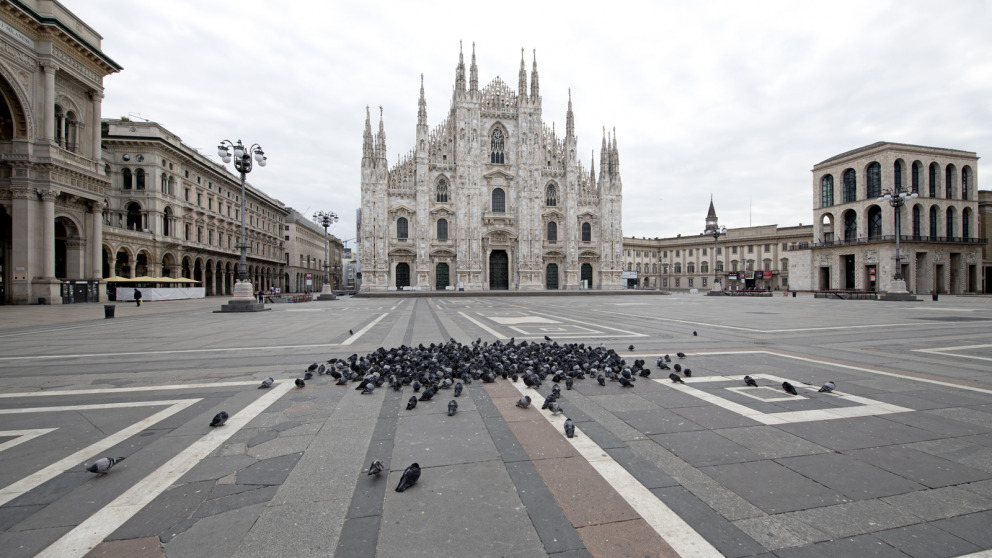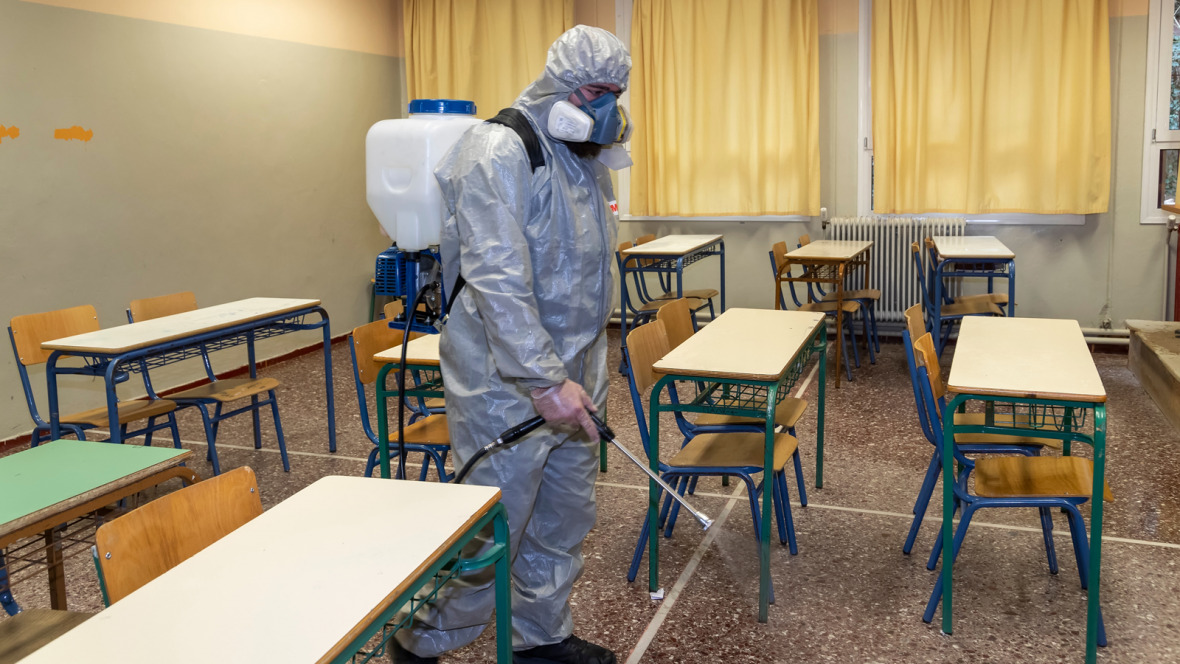Safety First? Core Values in the Discourse of Sustainability
16.04.2020

In the concluding part of Margaret Atwood’s MaddAddam trilogy, set in an unspecified but not too distant future, an artificially designed virus brings humankind to the verge of extinction. Told over long stretches through the flashbacks of the few remaining survivors, the pandemic, short and devastating, is what holds the plot together. Yet it’s not the pandemic that I’m reminded of in the midst of the corona crisis, but rather the social conditions in which it plays out. In Atwood’s dystopia, high-tech production centres are surrounded by gated communities where the business and technology elites live in sheltered luxury. Beyond these compounds, in the so-called pleeblands, most people are at the mercy of criminality and the whims of private security services, as well as being subject to higher mortality due to sporadic, localised epidemics. When the ultimate virus strikes, it wreaks havoc in the absence of solidarity and a functioning state.
The kind of society Atwood imagined at the height of the neoliberal discourse 15 years ago is interesting not on account of any similarities it bears to the current societal reactions to Covid-19, but rather because of its divergence from them. The moral inacceptability of corona deaths, the temporary subordination of economic to security interests, the renaissance of the state as redistributor and protector: These are the principles that are, to a greater or lesser degree, dominating our response to the pandemic (especially with regard to the issue of redistribution). We could not be further from Atwood’s MaddAddam world. The core values of security or safety, and maybe also justice or solidarity (more on that below), seem, for the moment, to be dictating action as never before. Given that these two values are also central to the discourse of sustainability – and studied by my research group in the context of political communication – it seems reasonable to ask: Can the current efforts to contain the pandemic be a model for sustainability policy?

I do not claim for one minute that this blog post can do justice to such an interesting and complex question. There are many aspects of the corona crisis that actors can and must learn from with a view to addressing global sustainability problems, for example with regard to the relationship between climate change and collective agency, between just-in-time production and resilience, and between complexity, democracy, and cultures of experts. Not everything that the latter are saying these days on the subject of sustainability seems to me to be helpful. Climate scientists, for one, need to ask themselves whether their overstretched comparisons between covid-19 and climate change unintentionally play down the latter as a systemic risk. After all, by likening the largely statistics-based arguments of “corona deniers” to the selective arguments of climate change deniers with no time for statistics, they may even be encouraging many people’s already jaundiced attitude to probabilistic science – especially when it comes to matters of health. At this point I want to foreground just one thought: While the protection of human life is central to sustainable development, the concept is also underpinned by other values that might conflict with that goal.
If it was ‘only’ about global environmental protection, i.e. resisting the threats to human life across the globe posed by poisons, pollution, soil erosion, floods, etc., then there would have been no need for the term sustainable development. It was the clash of economic interests and social demands in the Global North and South that necessitated the modern reinvention of this term in the 1970s and 1980s, when development pathways were sought to reconcile rising standards of living with ecological stability. Thus, for poorer regions in particular, but also for poorer people in more affluent regions, the concept was supposed to bring the promise of a better life as opposed to life as mere survival. This is clear not only in the concept itself (sustainable development), but also in the accompanying discussions on quality of life and extended basic needs, and on the central role played by innovation and modernisation in the discourse of sustainability. Regardless of how critical one is in this regard: These aspirations are not necessarily secondary to the value of security. As a thought experiment on covid-19 reveals, should infection protection one day demand that we live in a society without hugging or large celebrations, the things that for many people make life worth living would perhaps be curtailed to such an extent by this “innovation” that society might be safe(r) but certainly not sustainable. That is why, when seen in relation to sustainable development in the narrower sense, the justification of important measures solely on the basis of saving lives is not unproblematic – as currently exemplified in the argumentative linking of pedestrian and cycle paths with the value of “social distancing”, or, more generally, in the exclusive focus on air quality and road safety in the mobility debate, which we already observed in our analysis of German newspapers in 2018.
So sustainable development is meant to ensure our survival – but not at all costs, not if it means establishing a “paradise of perfect control”. In a control society the goal of protection (differentiated into active care (safety) and authoritative control (security)) would come into serious conflict with that of freedom. And from a moral theoretical perspective, it could be expected that a significant minority of people would permanently rail against such a society. But it must be admitted that since freedom has not been a core value in the discourse of sustainable development so far, “sustainability as control” is a development pathway that is, in principle, compatible with the concept. But sustainability scientists should at least point to the familiar “hubris” lurking here – a manic obsession with control that overestimates its potential results and underestimates its side effects. We need look no further than nuclear energy, biofuels and climate engineering.
A closing remark on possibly the most central political value of all, and certainly that of sustainable development: justice. As mentioned above, sustainability outgrew “environmental protection” by bringing global (!) distribution conflicts into the debate, conflicts about the distribution of opportunities for and obstacles to development. The logic, in the case of covid-19, that damages to the weaker (risk groups) are to be prevented by limiting the development prospects of the stronger, and that the lives of one group can be prolonged thanks to another group scaling back its ambitions, reflects precisely the kind of political movement that has been called for time and again – often in vain – in debates on sustainability policy (one only has to think of the contraction and convergence strategy in the climate negotiations).
At the same time, the weakest in society includes more than just covid-19 risk groups, and not all the damages wrought by the standstill can be compensated for by monetary contributions from the state. Children from educationally disadvantaged families are left even further behind in a period of extended home schooling; women are increasingly exposed to domestic violence during the lockdown; people with a poor Internet connection are disadvantaged; and many older people may evade the virus but suffer from loneliness and a lack of physical activity. These are just some of the groups who suffer disproportionately (in some cases with lasting adverse health effects) as a result of the supposedly solidary contact ban (or lockdown). Fortunately, in Germany it took hardly more than a week for their needs to resurface in the debate, and they also featured prominently as “solidarity conflicts” in the statement by the German Ethics Council.
I will, nevertheless, recall this first week, when “safety first” ruled supreme, with mixed feelings. Because if the answer to the question “whose security?” and “whose safety?” is not continually reassessed, if we refuse to look beyond the end of our noses, we will end up in a world where, ultimately, everybody just looks after number one, a world not so radically different from Atwood’s dystopia after all. Security defined only in terms of one’s own safety is diametrically opposed to the universalist character of justice. Focussing solely on the immediate threat to oneself would be the antithesis of sustainability. The good news in the corona crisis could be that we are capable of solidarity to an extent we never thought possible. But it will only be good news if this solidarity detatches itself from what seems similar and close to us, when it also embraces people – perhaps in our own neighbourhoods, in cramped apartments or shelters for the homeless – who are grappling with very different problems to our own in the same overall situation, or people elsewhere – be it in Moria or Bergamo – with the same problems as us.
